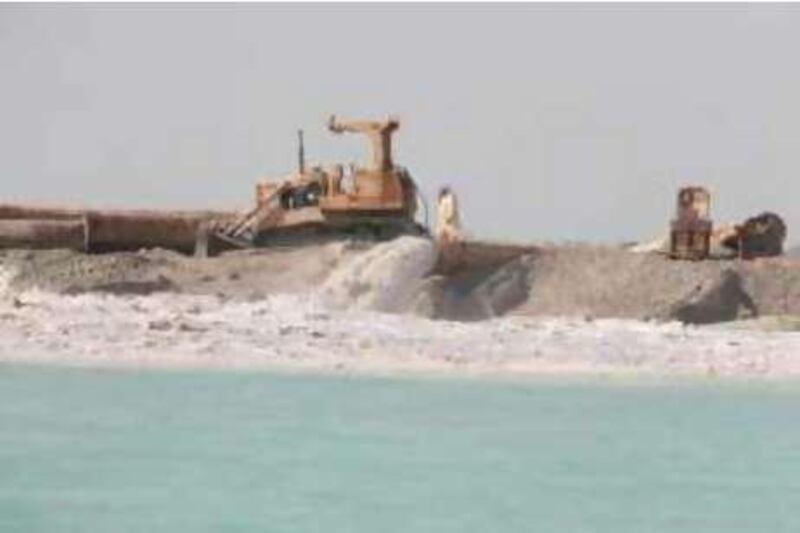Dredging companies are bracing for a drop in contracts as developers slow reclamation work on some island projects. The liquidity squeeze has encouraged the pioneer of local man-made islands, Nakheel, to scale back reclamation activity on the Palm Deira, the largest of its three Palm island developments in Dubai. And dredging contractors expect work on other long-term reclamation developments to slow over the next few months. "There are still a large amount of tenders we have to submit bids for, but whether they will turn into contracts is another matter," said Frank Jeuniaux, area manager, Dredging International, a Belgium-based company, on the sidelines of MEED's coastal projects conference in Dubai on Tuesday. "We see the tendering process getting slower." Dredging International is working on several reclamation projects, including Aldar's Al Raha Beach in Abu Dhabi, Rakeen's Al Marjan Islands and Dana Island in Ras al Khaimah and Nakheel's redevelopment of Port Rashid in Dubai. The contract values for the projects range from Dh871m (US$237m) for Al Raha Beach, Dh230m for Al Marjan Island, Dh1.6 billion for Dana Island and Dh2.2bn for Port Rashid. While some contracts may not come to fruition as quickly as anticipated, Mr Jeuniaux expected the impact on the company's order book to be minimum. "It is not only UAE projects which are important to us, our projects in other parts of the world are important too," he said. "We've always been very cautious about not putting too many of our vessels in one region, so if there's a small delay with some projects, then we will be OK." Arnoud Kuis, the commercial director of Van Oord, a Dutch dredging firm, said he expected the regional dredging market to see a slight correction over the next year as a result of the global financial downturn. "But I don't think it will be a major decline. The slowdown might last for one year, two years' maximum. There are projects planned over the long term that might have a hitch, but we don't think a short-term economic disturbance will influence long-term planning." Van Oord is one of the largest dredging companies in the world and is working on Nakheel's Palm Deira in a deal worth an estimated Dh10.6bn. The company is now fast-tracking reclamation work on areas of the project that are closest to the shoreline, while other parts of the project will be reclaimed later. "Nakheel asked us to push forward with the completion of the islands closest to the shore," added Mr Kuis. "It makes sense to complete them fast and on schedule so the land can be sold and developed." With the financial slowdown in mind, reclamation developers will need to adopt building methods that are more time- and cost-efficient, according to Dr Azm Shaher al Hamoud, senior geotechnical manager of Nakheel's Palm Jebel Ali. "We're still not being cost-efficient. With the current economic situation, we need to look at every detail to save time and money," he said. "In the past, it was a case of going for the most expensive option - this is no longer a luxury." Still, Mr Kuis added that with demand for waterfront property expected to remain high, the cost of land reclamation was far outweighed by the return that could be reaped through the sale of reclaimed land. The price of land on island projects in Dubai start from about Dh8,295 per square metre, he said. "There's a huge financial leverage for land reclamation." aguiffrida@thenational.ae
Land reclamation projects to slow
Dredging companies say financing for offshore island developments is expected to dry up soon.

Editor's picks
More from the national





